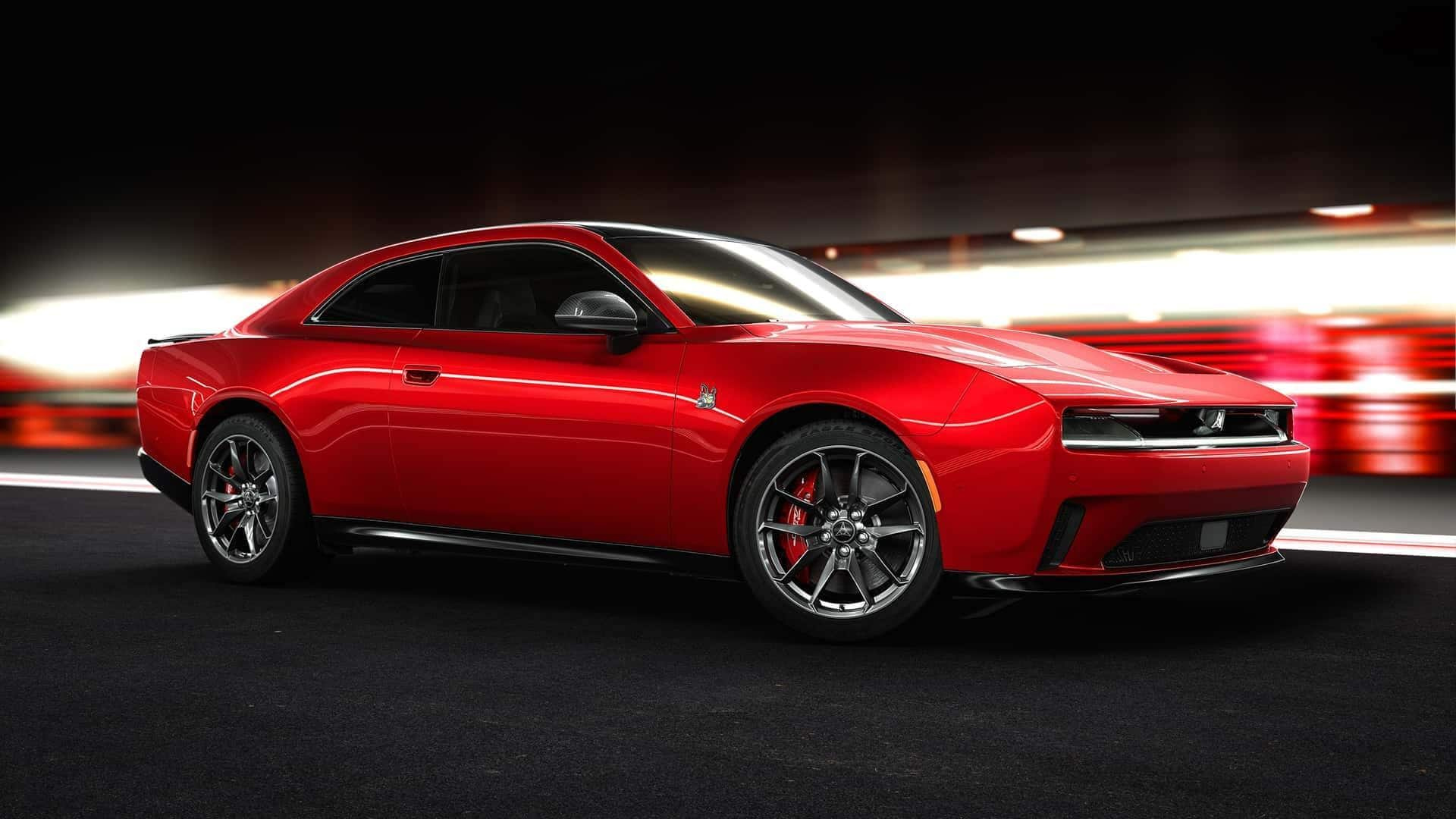
Charger Daytona breaks cover as Dodge's first all-electric performance car
What's the story
Dodge has unveiled its first-ever electric vehicle, the 2024 Charger Daytona. The US-based heritage automaker touts it as the world's first electric muscle car. With a 400V electric system and a large 100.5kWh battery pack, the car can produce up to 670hp of power and sprint from 0 to 96km/h in just 3.3 seconds. While CEO Tim Kuniskis announced the arrival of new-generation Dodge muscle cars, the company also intends to keep the ICE-powered model alive for the time being.
Performance
Charger Daytona's performance and variants
The Charger Daytona can complete a quarter-mile in just 11.5 seconds, making it the "world's quickest and most powerful muscle car," according to Dodge. The company will offer the all-electric coupe in two trim levels: Daytona Scat Pack with a 670hp dual electric motor setup and a 418km range, and the Daytona R/T with a 496hp dual motor setup and a 510km range. Two petrol-powered models, Charger Sixpack H.O. and Sixpack S.O., will also be available.
Production timeline
Production timeline and manufacturing location
Production of the two-door coupe versions of the electric Charger Daytona is slated to start in mid-2024, while four-door models will begin production in early 2025. The petrol-powered models are also set for production in early 2025. All models will be manufactured at Stellantis's Windsor Assembly Plant in Ontario, Canada. Pricing details for the Charger models are expected to be revealed by Dodge in the coming months, ahead of its official launch.
EV commitment
Dodge's commitment to performance in EV transition
Over the past decade, Dodge has concentrated on American muscle and performance vehicles. CEO Tim Kuniskis acknowledged that the shift to electric vehicles was inevitable but stressed the importance of preserving the brand's identity during the transition. He said, "Most people think electric cars are supposed to save the planet... But that was never the point... they never told us that we had to be boring and slow."